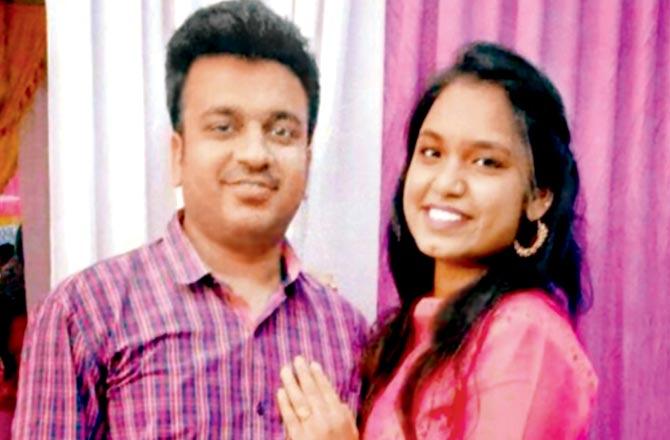As Crime Branch recommends just departmental action against Dr Ching Ling and Dr Sneha Shirodkar for allegedly turning a blind eye to Payal Tadvi's harassment, legal experts say witness statements can be used to prosecute the duo

Dr Payal Tadvi
Owing to a procedural loophole, Mumbai police may not prosecute senior Nair Hospital doctors Dr Yi Ching Ling and Dr Sneha Shirodkar in the case of Dr Payal Tadvi's death. Days after the charge sheet in the case highlighted that the senior department heads were aware of the harassment Dr Tadvi was being put through, the Crime Branch on Wednesday concluded that there was no evidence to prosecute them.
ADVERTISEMENT
However, legal experts believe nothing should stop cops from recording statements of witnesses under Section 164 of the CrPC before the magistrate, which can be considered valid evidence against Dr Ching Ling and Dr Shirodkar. Instead of doing this, the crime branch has sent a recommendation letter to the Brihanmumbai Municipal Corporation (BMC) to initiate only a departmental inquiry against Dr Ching Ling (head of the unit) and Dr. Sneha Shirodkar (head of the gynaecology department) and Dr Ramesh Bharmal, dean of Nair Hospital. On August 6, mid-day reported in 'I got no complaint, written or oral, till Dr Tadvi's suicide,' about Dr Ching Ling claiming that neither Dr Tadvi nor her family had made a written complaint or provided any solid evidence of caste-based harassment.
Also Read: Dr Payal Tadvi's suicide: Professors 'collecting signatures' to get Dr Ching Ling 'reinstated'

Dr Salman and Dr Payal Tadvi
No written complaint
According to sources in the crime branch, there is some evidence against these doctors, but no section of the Maharashtra Prohibition of Ragging Act, 1999, can be applied to take action against them. Sources added that no written complaint has been registered against the senior doctors, which is required to prosecute them. A senior officer said, "As per the evidence we have collected during the course of the investigation, we have recommended the Municipal Commissioner to take necessary departmental action against the three doctors. The evidence we have suggests that a number of verbal complaints were made to Dr Ching Ling. The other two senior doctors, including the dean, were also aware of the harassment being faced by Dr Tadvi. Had a written complaint been submitted, we could have prosecuted the doctors." According to legal experts, Dr Ching Ling could be held responsible under relevant sections of the Maharashtra Prohibition of Ragging Act, 1999. The crime branch reiterated that it could have been invoked had a written complaint been registered.
Family unhappy
Dr Tadvi's family is unhappy with the crime branch, saying it has shirked its responsibility in the case. Dr Salman Tadvi, Dr Tadvi's husband, said, "Everyone related to this case is aware of the harassment Payal was subjected to, including every doctor and staff of the ward. Payal's mother and I had met Dr Ching Ling to inform her about the same. Now these doctors are trying to protect their skin. Even the Mumbai Crime Branch doesn't want to prosecute them." He added, "What more evidence does the crime branch need? They have already recorded statements of several witnesses who have narrated the same story. Why should they only look at one particular Act? There is complete ignorance on the part of these doctors even though the matter was serious and family members had complained as well."
164
Section of the CrPC under which statements recorded in front of a magistrate are admissible in a court of law
1.2k
No. of pages in the three-volume charge sheet filed in the case last fortnight against three senior doctors
Also Read: Dr Payal Tadvi case: Testimonies put senior doctors' roles in spotlight
What the law states
Section 6 (1) of The Maharashtra Prohibition of Ragging Act states: Whenever any student or, as the case may be, the parent or guardian, or a teacher of an educational institution complains, in writing, of ragging to the head of the educational institution, the head of that educational institution shall, without prejudice to the foregoing provisions, within seven days of the receipt of the complaint, enquire into the matter mentioned in the complaint and if, prima facie, it is found true, suspend the student who is accused of the offence, and shall, immediately forward the complaint to the Police Station having jurisdiction over the area in which the educational institution is situated, for further action.
(2) Where, on enquiry by the head of the educational institution, it is proved that there is no substance, prima facie, in the complaint received under sub-section (1), he shall intimate the fact, in writing, to the complainant. (3) The decision of the head of the educational institution that the student has indulged in ragging under sub-section (1), shall be final. Section 7 of the Act states: If the head of the educational institution fails or neglects to take action in the manner specified in section 6 when a complaint of ragging is made, such person shall be deemed to have abetted the offence of ragging and shall, on conviction, be punished as provided for in section 4.
Also Read: Accused doctors in Payal Tadvi's case never behaved normally with their juniors, say doctors
Catch up on all the latest Crime, National, International and Hatke news here. Also download the new mid-day Android and iOS apps to get latest updates
 Subscribe today by clicking the link and stay updated with the latest news!" Click here!
Subscribe today by clicking the link and stay updated with the latest news!" Click here!






